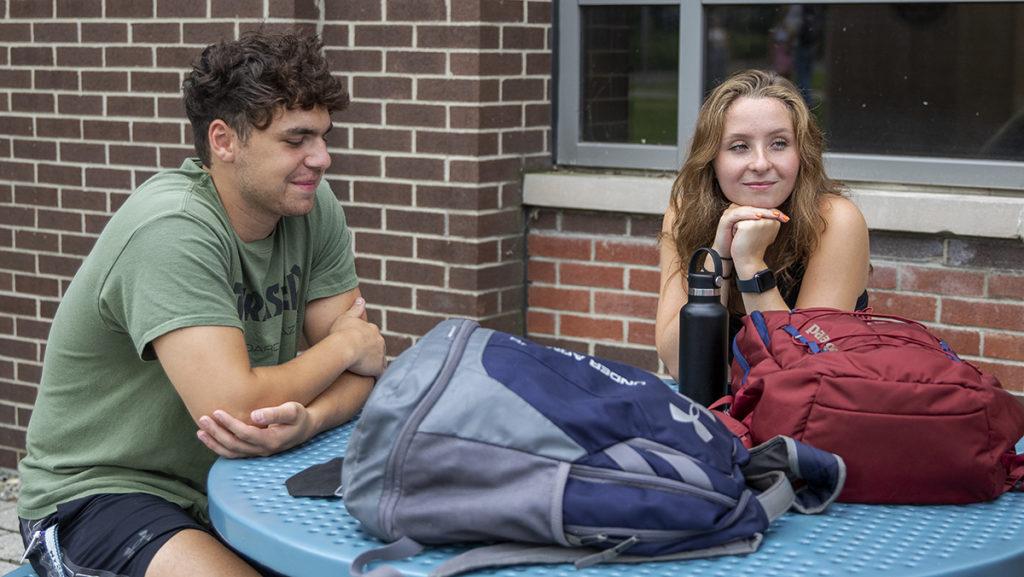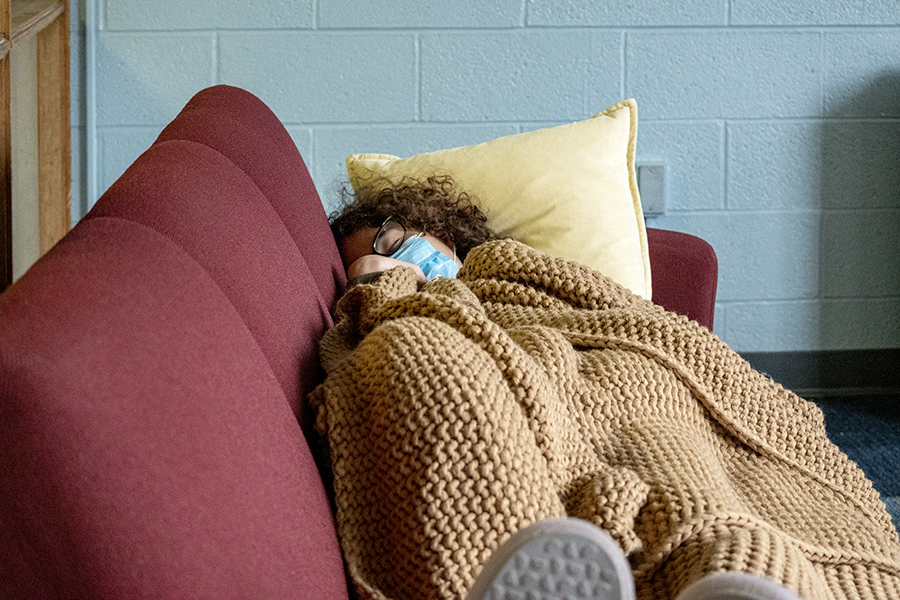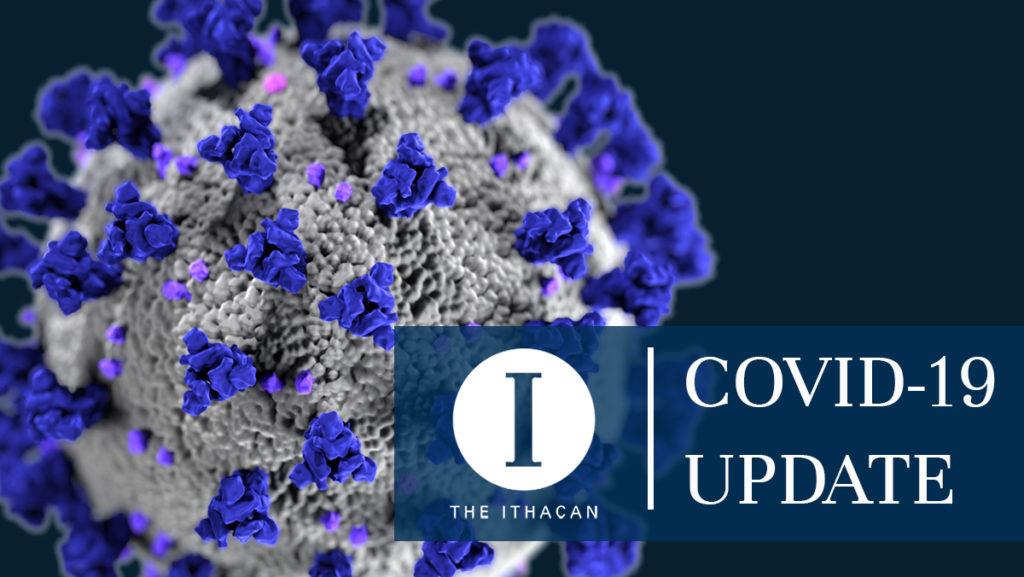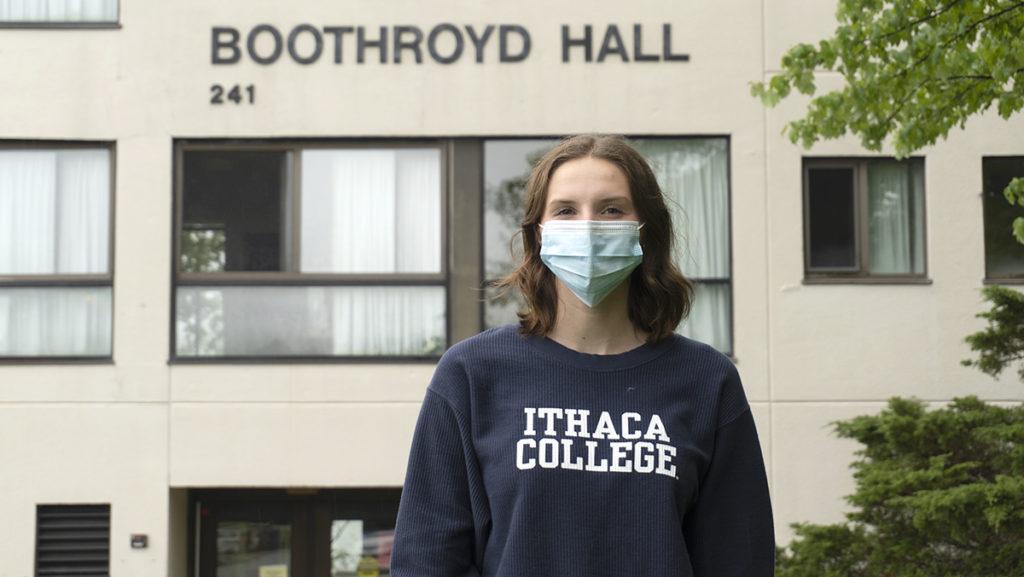Ithaca College has required students to be fully vaccinated against COVID-19 for Fall 2021, resulting in over 99% of the student population being fully vaccinated.
In April 2021, the college announced that all students must be vaccinated in order to return to campus for the fall semester. Students were required to submit their vaccination cards to the Hammond Health Center by July 19. Students can still be exempt from the vaccine mandate because of medical or disability reasons, but requests for religious exemptions were due July 19.
International students needed to have received any World Health Organization (WHO) approved vaccine in their home country and submitted their vaccination card by July 19. The WHO has approved seven vaccines: Moderna, Pfizer, Janssen, Oxford, Serum Institute of India, Sinopharm and Sinovac.
As of Aug. 23, 51.6% of the U.S is fully vaccinated, according to the Centers for Disease Control and Prevention (CDC).
Samm Swarts, assistant director of Emergency Preparedness and Response in the Department of Public Safety and Emergency Management, said that the vaccination cards students submit go through a two-step verification process when they are submitted to the health center.
“The students initially sent in their cards to Hammond Health and then a staff member from the health center has also confirmed the information to make sure that it matches other databases,” Swarts said.
Swarts said that there have been very few instances of students submitting fake vaccination cards to the college.
Katie Newcomb, assistant director of the Department of Student Conduct and Community Standards, said that if it was discovered that a student had submitted a fake vaccine card, they would be referred to the Office of Student Conduct & Community Standards and would participate in the administrative hearing process. She said the situation and the hearing could result in a variety of outcomes, and the office would weigh a number of factors, including past violations, the student’s level of cooperation, extent of harm caused and impact on the community.
Newcomb said expulsion could be a possible, but uncommon, outcome.
“Expulsion is a sanction that is only used in the most egregious of situations, typically where we believe a student’s behavior and decision making presents an ongoing, and/or significant risk to the safety of our campus community,” Newcomb said via email.
Students who are fully vaccinated, have submitted their vaccine card and continue to fill out the Daily Health Screening, do not need to participate in surveillance testing, but are required to wear masks indoors. Students who are not fully vaccinated need to participate in weekly COVID-19 surveillance testing and are required to wear masks at all times indoors and outdoors when social distancing cannot be maintained.
Newcomb said students who fail to comply with testing requirements, wearing a face covering — whether vaccinated or not — or any other health and safety guidelines may be referred to the Office of Student Conduct.
“In addition, if students are concerned that a student who is not vaccinated is not following safety precautions, they can submit the Community Agreement Reporting Form,” she said via email.
Freshman Lauren Sieber said she is fully vaccinated and feels safer knowing that the majority of the campus population is vaccinated.
“As long as they’re wearing a mask and keeping a distance and they’re not having any symptoms, I don’t mind it,” Sieber said.
Stewart Auyash, associate professor in the Department of Health Promotion and Physical Education, said he is a proponent of the vaccine mandate for students, but noted that there are inequities surrounding the distribution of the vaccine.
“If some students do not have access to the vaccine for whatever reason, I think [the college] should provide it free of charge,” Auyash said via email. “I think it will help make our campus safer and reduce the risk of spreading COVID.”
While students are required to be vaccinated — barring religious or medical exceptions — faculty and staff at the college are not required to be. The college’s website states that it strongly encourages faculty and staff to be fully vaccinated.
Swarts said 78% of faculty and staff are fully vaccinated as of Aug. 24. He said the college has received feedback from families regarding the lack of a vaccine mandate for faculty and staff.
“We continue to monitor the situation and take under consideration potential vaccination requirements that may happen in the future,” Swarts said via email.
An Aug. 23 Intercom post stated that all college employees working on campus during the fall semester are required to provide proof of vaccination or undergo mandatory surveillance testing once per week.
Auyash said he has not asked the administration at the college why there is not a vaccine mandate for faculty and staff, but could guess that there could be possible concerns, including legal concerns; alienating employees, which could cause some to leave the college and belief that the risk is low enough, which Auyash said he thought could change once the vaccines are fully approved by the Food and Drug Administration (FDA).
The Pfizer vaccine was the first COVID-19 to be approved by the FDA on Aug. 23.
Senior Sophie Denton said she thinks faculty and staff should be required to get the COVID-19 vaccine.
“A friend of mine recently had a class canceled today because the professor had COVID,” Denton said. “So I just think that if it’s required for us, it should be required for the professors as well.”
According to the college’s COVID-19 dashboard, as of Aug. 25, there is one off-campus student case and two total employee cases.
Joan Goodrich, a parent of a freshman at the college and a nurse at Cobleskill Regional Hospital in Cobleskill, New York, said she was surprised to find that there is not a vaccine mandate for faculty and staff.
“I was under the impression that [my daughter] is going into an area that is fully vaccinated,” Goodrich said. “And that doesn’t appear to be the case. You know, she could have a teacher that spreads it to another student or even to my daughter.”
She said vaccines help to reduce the number of COVID-19 cases, but that effect is limited if not everyone is fully vaccinated.
“If we’re not going to fully vaccinate, then we’re not going to be able to reduce that number,” Goodrich said. “And we’re going to see an increase in the cases in the vaccinated population, which we’re already seeing.”












